Finding the Sublime in the Mundane - One Panel of My Begging Chart and the Brilliance of Keiler Roberts
Keiler Roberts hones in on simplicity precisely to expose the complexity of life.
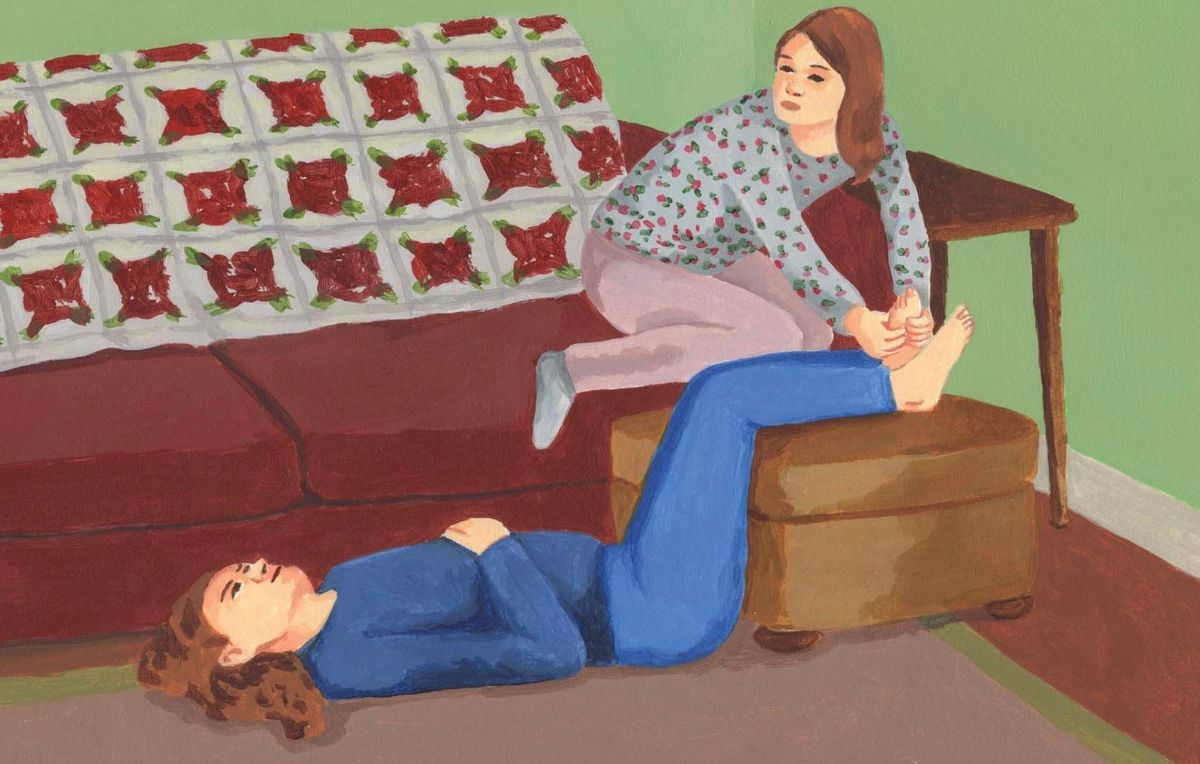
I finished reading My Begging Chart a month and a half ago if my Twitter is to be trusted, and I’ve been thinking about it most days since.
I have a special fondness for Keiler Roberts' brand of wry self-deprecation. It’s been my functional modus operandi since at least high school. I also deeply appreciate honesty in a memoir - and I mean the type of honesty that you can feel, that is almost palpable, that stretches far beyond the mere factual. At first blush, such a statement might seem a little glib. No one likes dishonest memoirs, right? But I’m talking about the type of honesty that resonates with you in a kind of way that settles into a special place in your soul.
My Begging Chart is precisely that type of honest memoir, but it is also so much more than just a typical memoir. God, I’m already tired of typing memoir. It has some indebtedness to the current flock of mental health comics, sure, but it also functions very much like a slice of life comic. There are pages - not just panels - where nothing really happens beyond the passing of time. You know, just like life. A scene in a kitchen of little consequence, motionless Barbies, trying on clothes, or sitting on the couch.
And it’s precisely the combination of these elements - the honest self-assessment coupled with a fundamental understanding that whatever she puts on the page is going to be relevant and meaningful to the work (even when it seems most like it is not) - that makes this book the thorough examination of life that it is.
The genius in the assembly of My Begging Chart is that it connotes slice of life more than a memoir. It feels like a series of slice of life comics linked together to create one coherent narrative. And I mean that in a good way - it works well. The book, when examined from a wide angle, has a clear and distinct narrative, but the narrative is just meandering enough to give the feel that this is real life, the way it cascades for all of us, sometimes with prime importance, days we’d never forget, and other days where nothing seems to happen, forgettable but still integral in their own ways in that the each day by design has to lead to the next one. I think this kind of storytelling is absolutely brilliant. And it is also rather courageous. I can’t imagine the pressure to pack a book with content, to not allow it to segue into the mundane - but the fact that even the most intense parts of life eventually coalesce into the forgettable is the very point of My Begging Chart. It’s that honesty - and I think My Begging Chart is as honest as any other autobiographical book I’ve read - that sells this book so well for me as a reader.
A while back, I was reading through Ryan Carey’s blog. It might have been around the end of the year, and Ryan was writing about how subtlety in graphic storytelling is deceiving, how it’s over-mined and overdone to the point that it often masks an otherwise boring narrative. That resonated with me, because while I appreciate the books that can pull back enough to let the reader make some inferences, I had also been noticing a similar pattern in my reading. But I can’t help but feel that Roberts is more than just the exception that proves this this, she is also the antidote to it. And perhaps subtlety is the wrong word to describe everything Roberts does with My Begging Chart. Maybe it’s really nuance.
Yes, it's the nuance. And in returning again and again to the book to find my angle to write about it, I continued to meditate on this panel.
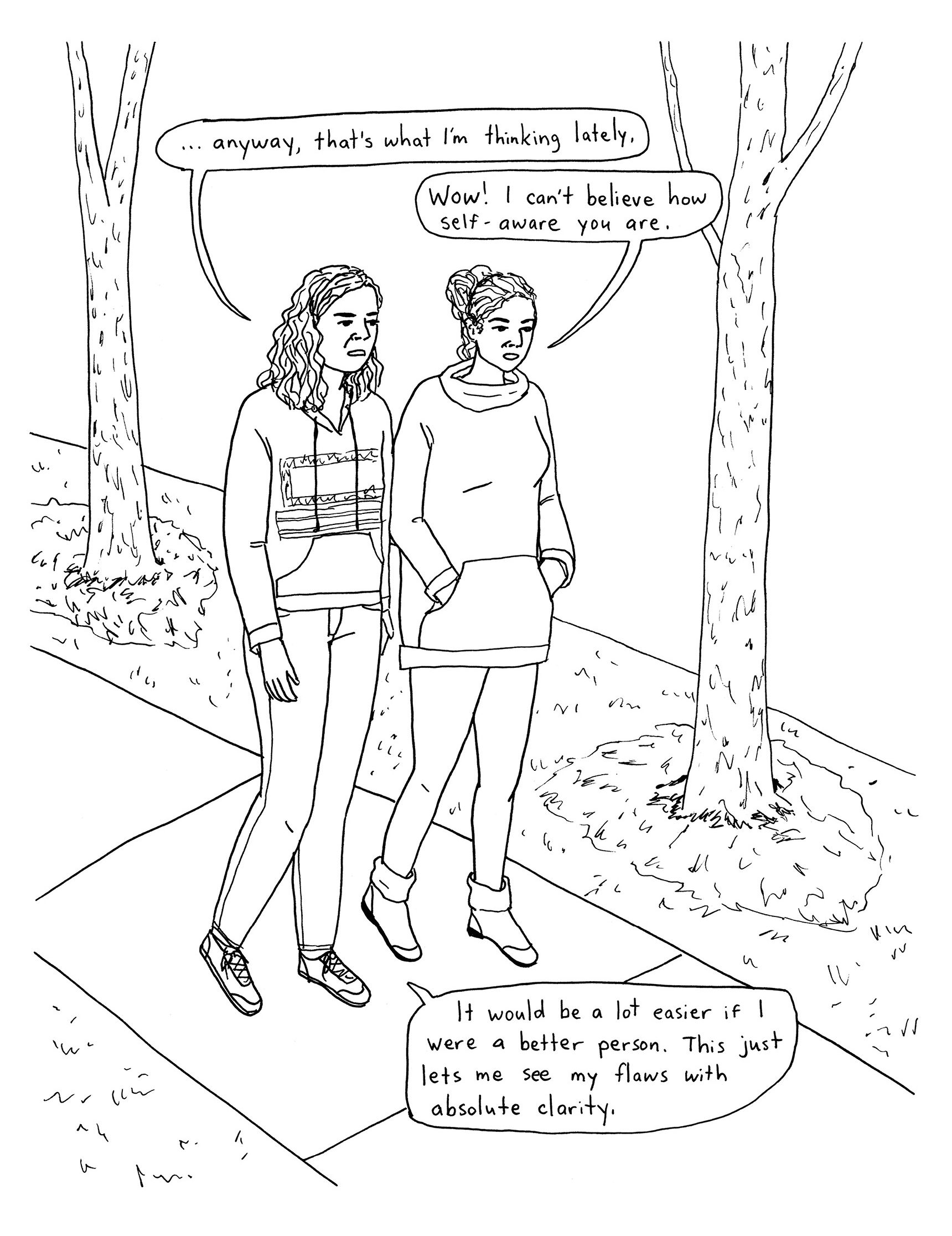
It's page 97 of the book, roughly 2/3 of the way through. And you're probably saying to yourself, "cool, so what were they talking about on page 96?" But that's the point. This page comes entirely out of nowhere. Page 98 doesn't continue the conversation. We are left with this scene to contemplate two thirds of the way through our journey alongside Keiler. At this point, we had a grasp on her sardonic outlook, but we've also seen the honest moments. We have no idea the antecedent that leads to "anyway," and we're entirely uncertain whether she's being sincere with her self-assessment.
I could have picked any number of panels or pages from My Begging Chart, and perhaps there are ones better express the overall work. But for me, this page exemplifies Roberts' wit while also exhibiting the general narrative framework that sometimes this book is directly linear and sometimes it's not. Roberts' work is often described as "diary comics," and who hasn't tried to keep a diary in which there are pages of narrative flow that intricately chronicle days in succession followed up with a random thought jotted down two weeks later?
So, after two reads and a fair amount of contemplation, I'm still in awe of My Begging Chart. The book is downright unassuming, subtle, but not in a boring, reductive, “isn’t everything just quaint and awful?” kind of way. No, My Begging Chart is far more wry, almost devious in its construction. Roberts hones in on simplicity precisely to expose the complexity of life. It is through the day to day mundanities that Roberts develops her vitality of voice - sardonic, shifty, squinting an an imaginary object out of focus. And, frankly, I could spend another hour typing on and on about how much I enjoyed reading My Begging Chart. I could drone endlessly about the precision of Roberts craft, and the tight execution of each panel.
There is a certain element of realism inherent to the style. Life keeps trudging along; there aren’t massive plot points or emerging conflicts to create a functional plot. Rather, like Roberts' thin and quick sketch style of cartooning, the plot is just the wispy ins and outs of everyday life - no definitive moral, no grand narrative. Ideas and concepts occasionally return, and there are certainly thematic elements - coping with mental health, coping with developing MS, the anxieties of motherhood - that permeate the book. But it is almost the inconsistencies that shine the most, the way Roberts can capture the fact that even though they are stacked upon one another, moments need not necessarily feel chronological. She essentially embraces the entropy of the mundane. My Begging Chart is billed as a memoir, and it is. But it’s more of a self satire, a cathartic slice of life assault on the author’s world. It is a brutal book without ever seeming so. This is it. This is the confrontation with the world around us.
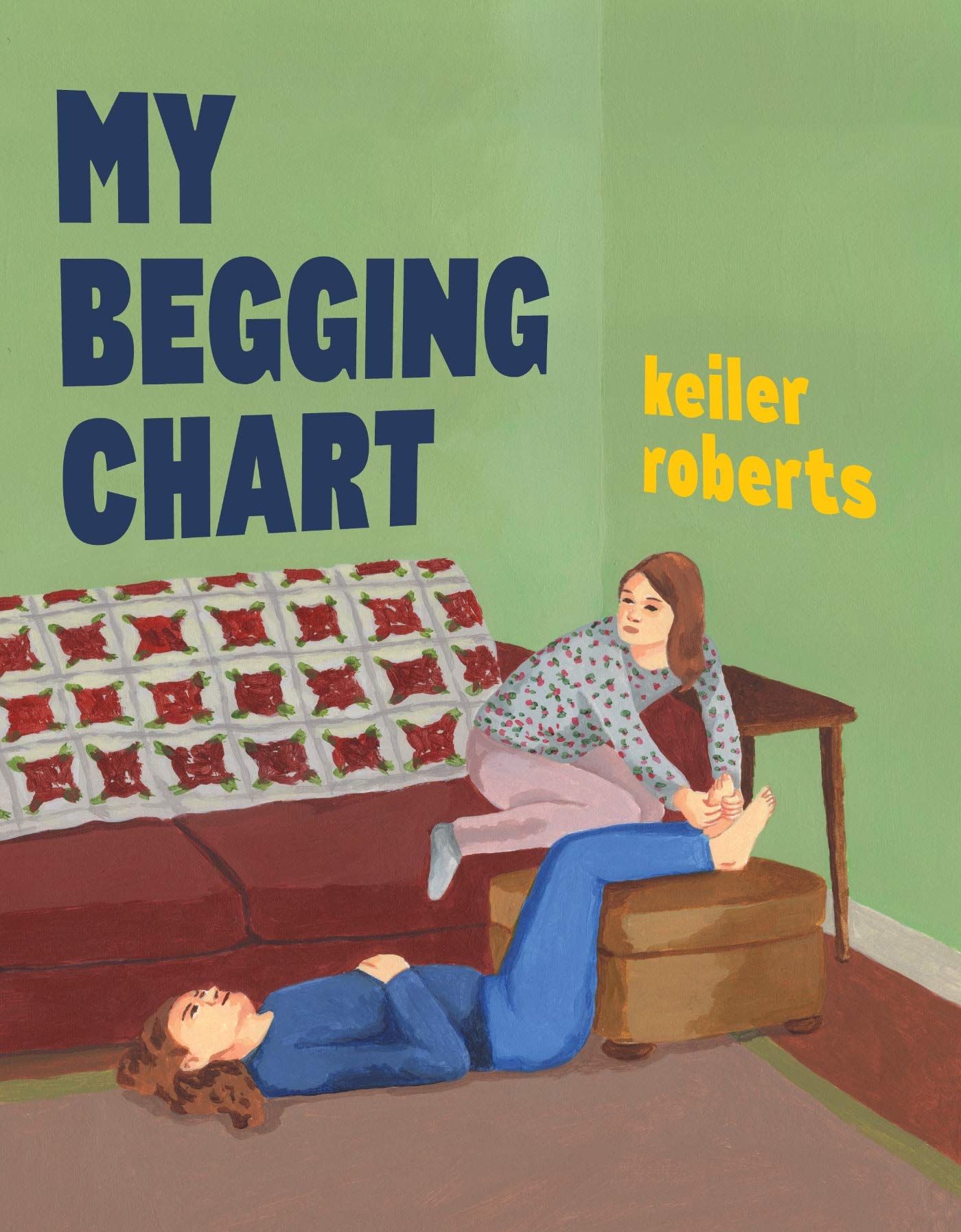



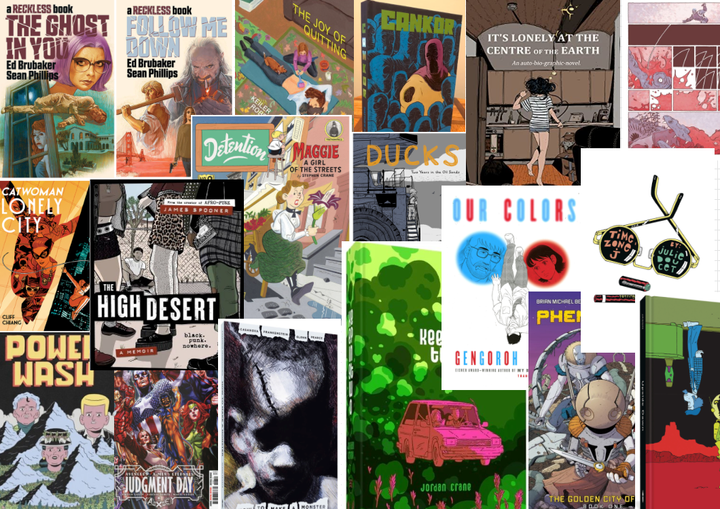
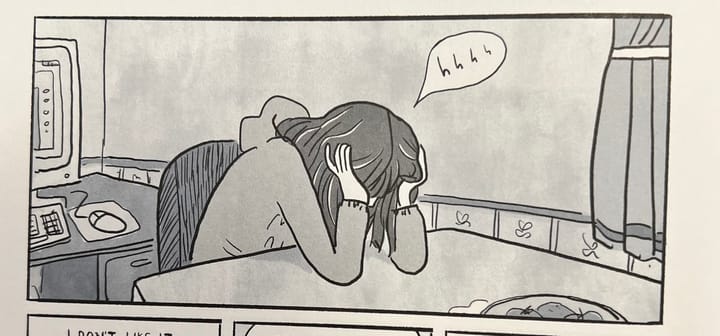
Comments ()